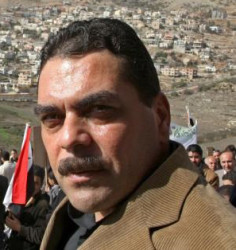BEIRUT, (Reuters) – An Israeli air strike killed Samir Qantar, a Hezbollah militant leader, in Damascus on Saturday evening, the Lebanese group and Syrian state media said yesterday.

Israel welcomed Qantar’s death, saying he had been preparing attacks on it from Syrian soil, but stopped short of confirming responsibility for the strike that killed him.
A former national security adviser to Israel said he doubted the strike would escalate hostilities between Israel and Iranian-backed Hezbollah, whose last major confrontation was in 2006.
Israel has formally kept out of Syria’s civil war which started almost five years ago but has bombed Hezbollah targets there without publicly acknowledging these sorties.
Hezbollah, a powerful Shi’ite Muslim group that has sent hundreds of fighters to Syria to support President Bashar al-Assad against rebels trying to topple him, said Qantar was “martyred” in an Israeli raid on the residential district of Jaramana in the Syrian capital, but gave no details.
Hezbollah leader Sayyed Hassan Nasrallah was due to speak on Monday evening as both supporters of the group and Syrian loyalist groups said the death of Qantar would be avenged and not be in vain.
Three Katuysha rockets that were fired from Lebanon struck open areas in northern Israel, causing no damage or injuries but bringing immediate retaliation from Israel, which fired artillery rounds into southern Lebanon amid increased tensions along the two countries’ borders.
The Israeli army said it held the Lebanese government responsible for attacks emanating from its territory and that it would “continue to act against any attempt to harm Israel’s sovereignty and the security of its citizens.”
Jailed in Israel for his part in a 1979 raid in Israel that killed four people, Qantar, a Druze, was repatriated to Lebanon in 2008 in a prisoner swap with Hezbollah, which he is then believed to have joined.
Yaakov Amidror, Israel’s former national security adviser, predicted Hezbollah would seek to exact “small revenge” for Qantar’s killing, but said Hezbollah, like Iran, was likely too busy fighting in Syria to afford a new front with Israel.




